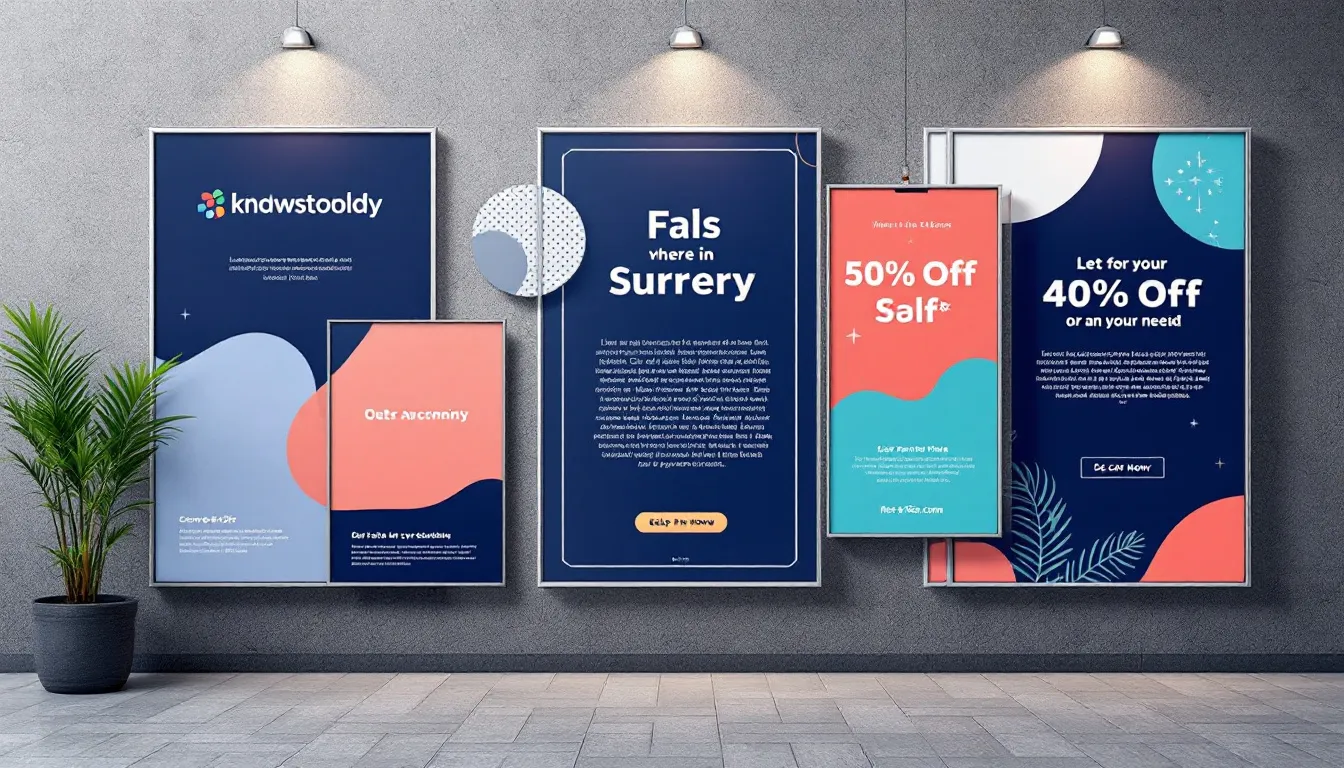Want to boost your website's search rankings? Here's how to build links and increase your Domain Authority in 2024:
- Focus on quality backlinks from high-DA sites (70+)
- Create original, link-worthy content
- Audit and clean up your link profile regularly
- Improve site usability and internal linking
- Study competitor backlinks for opportunities
- Reclaim lost links
- Use social media to amplify content
Key things to remember:
- Quality beats quantity for backlinks
- DA scores range from 1-100 (higher is better)
- Improving DA takes time - focus on steady growth
- Use tools like Moz, Ahrefs or SEMrush to track progress
Ready to dive in? Let's explore proven link building tactics to boost your Domain Authority and leave competitors in the dust.
Related video from YouTube
Link Building Basics for Domain Authority
Want to boost your Domain Authority (DA)? Link building is key. But it's not about getting tons of links. It's about getting the right ones.
Quality Over Quantity
In SEO, one awesome link beats a hundred meh ones. Here's why:
- Big-name sites give you more juice. A link from BBC.co.uk (DA 95) is gold compared to one from a random blog.
- Relevant links rock. If you're a plumber, a link from a top roofing company about leak causes? That's the good stuff.
- Slow and steady wins. Google likes link profiles that grow naturally over time.
Fun fact: Semrush found that 8 of Google's top 20 ranking factors are about backlinks. So yeah, quality matters.
Don't Make These Link Building Mistakes
Avoiding link fails is just as important as getting good links. Here's what NOT to do:
1. Buying links
It's tempting, but don't do it. Google hates it, and you'll tank your DA. Instead, make content so good people want to link to it.
2. Using link farms
These are like the fast food of link building. They're cheap, easy, and terrible for you. Avoid them like the plague.
3. Getting irrelevant links
Links from random sites won't help. Stick to your niche and build real relationships.
4. Overusing keyword-rich anchor text
Mix it up. Use brand names, URLs, and natural phrases. Don't sound like a robot.
5. Forgetting internal links
External links are great, but don't ignore your own site. Good internal linking helps users and boosts your authority.
As the Loganix Team says:
"Backlink quality is not a single metric… It is more of an assessment based on a range of link building metrics."
Keep an eye on your links. Use Google Search Console or other SEO tools to spot and ditch any bad links dragging you down.
How to Build Good Links
Want to boost your Domain Authority and SEO? You need high-quality links. Here's how to get them:
Making Content That Gets Links
The key to link building? Create content people want to link to. Here's how:
- Do original research: Run surveys, crunch numbers, or test things out. People love fresh data. Just look at Backlinko's Google search results study - it got shared over 14,000 times!
- Write mega guides: Go deep on a topic. These comprehensive resources tend to attract links like magnets.
- Get visual: Infographics and videos are link gold. They're easy to share and embed.
- Use the Skyscraper Technique: Find popular content in your niche, then make something WAY better. The guy who invented this? He got over 10,200 backlinks to ONE piece of content.
- Build interactive stuff: Think calculators, quizzes, or fancy infographics. If it's useful and fun, people will link to it.
Remember: quality beats quantity every time. Moz puts it well:
"Rather than thinking of Domain Authority as the ultimate ranking method for a website, it's better to view it as an indicator of your website's overall health."
Focus on making stuff people actually want to read and share.
Writing for Other Websites
Guest posting still works for building links. Here's how to do it right:
- Aim high: Look for blogs with serious clout in your field. Use tools like Semrush to check their Authority Score.
- Pitch something fresh: Don't rehash old topics. If you're writing for a marketing blog, try "5 Email Marketing Tricks That'll Work in 2024" instead of "Email Marketing 101".
- Follow the rules: Each blog has its own guidelines. Read them. Follow them. It's that simple.
- Add value, not spam: Write stuff that actually helps people. Google's Search Central Blog says guest posts should "inform users, educate another site's audience, or bring awareness to your cause or company."
- Nail your bio: This is usually where you get your link. Make it count.
- Stay engaged: Once your post is live, reply to comments and share it on social media. Show you care.
Keep at it, and you'll build relationships, boost your brand, and earn those sweet, sweet backlinks that'll pump up your Domain Authority.
Tools to Check Domain Authority
Want to know how your website stacks up in search engines? You need to track your Domain Authority (DA). Here are some top tools to help you measure and boost your DA:
Domain Authority Tools Showdown
Let's compare the main DA measurement tools:
| Tool | What's Cool | How Much? |
|---|---|---|
| Moz | - Created DA metric - Free Chrome extension - Full SEO toolkit |
Free DA checker Paid: $99/month+ |
| Ahrefs | - Domain Rating (DR) metric - Deep backlink analysis - Spy on competitors |
Free DR checker Paid: $169/month+ (yearly) |
| SEMrush | - Authority Score metric - All-in-one SEO platform - Keyword research |
Starts at $129.95/month |
| Majestic | - Trust Flow and Citation Flow - Detailed link profile analysis |
Starts at $49.99/month |
Moz, the OG DA creator, offers a free DA checker that's super popular. Their Chrome extension lets you check DA scores while browsing - pretty handy!
Ahrefs uses its own Domain Rating (DR) metric and has killer backlink analysis. Will Critchlow, CEO of SearchPilot, says: "Nothing on the market compares to Moz's Domain Authority metrics, which we refer to constantly." But Ahrefs' DR is gaining fans because it updates more often (every 5-7 days vs. Moz's monthly updates).
SEMrush and Majestic bring their own unique metrics to the table. SEMrush's all-in-one platform is great if you want to do DA checks and other SEO stuff in one place.
Content and Marketing Tools
Content and Marketing (https://content-and-marketing.com) doesn't do DA checks, but they've got a sweet directory of tools for content creation and marketing. You might find some gems for:
- Content creation: AI writing assistants to help you make link-worthy stuff
- Outreach management: Tools to make link building outreach less of a headache
- Social media management: Platforms to spread your content and attract natural backlinks
Just remember, these tools are part of the puzzle, not the whole picture. As Moz says, "Don't think of Domain Authority as the ultimate ranking method. It's more like a health check for your website."
When you're using these tools, focus on trends, not just numbers. Seeing your DA go up over time is way more important than hitting a specific score. Use these insights to guide your link building, create awesome content, and level up your SEO game.
sbb-itb-645e3f7
Expert Link Building Methods
Want to level up your link building? Let's explore some advanced techniques that'll boost your Domain Authority and leave your competitors scratching their heads.
Study Competitor Links
Curious about your rivals' link juice sources? Here's how to peek at their backlink strategy:
Use Semrush's Backlink Gap tool. It's like a treasure map for link opportunities. Look for sites that link to your competitors but not to you. These are your prime targets.
But don't chase just any link. Focus on high Domain Authority sites that fit your niche.
Here's a real-world win: A tech startup used Semrush to analyze their top three competitors. They found 50 quality sites linking to all three rivals but not to them. After some smart outreach, they snagged links from 15 of these sites in just two months. The result? Their Domain Authority jumped by 12 points.
Fix Lost Links
Link reclamation is like finding cash in your old jeans. Here's the game plan:
1. Find those lost links
Use tools like Ahrefs or SEMrush to spot links you've lost over time.
2. Pick the best ones
Start with reclaiming links from high-authority sites.
3. Reach out and reconnect
Get in touch with webmasters to resurrect those links.
Antonio Gabric, a link building pro, shared a killer case study:
"In March 2023, I reclaimed 31 backlinks from just 166 outreach emails, hitting an 18.67% conversion rate. That's unheard of in link outreach these days."
How'd he do it? He used Ahrefs to find lost links, focusing on the cream of the crop. He dug into why each link vanished (page gone, redirected, etc.). Then, he crafted personal emails explaining why bringing back the link was a win-win.
The payoff? A big boost in Domain Authority without breaking a sweat.
Link building isn't just about new links. It's also about keeping and reclaiming your hard-earned ones. As Sam, a Technical SEO Strategist, puts it:
"Link reclamation is among the easiest link building strategies that can deliver the highest ROI."
So, don't just chase new links. Keep an eye on your existing ones too. It's like tending a garden - you've got to plant new seeds AND take care of what's already growing.
Protect Your Link Profile
Your link profile is your online reputation. Keep it clean and strong to maintain high Domain Authority. Here's how:
Find Bad Links
Bad links drag you down. Here's how to spot and ditch them:
1. Regular Audits
Don't wait for Google penalties. Run link audits often. Use Ahrefs, SEMrush, or Moz Link Explorer to check your backlink profile.
2. Spot the Red Flags
Watch out for links from:
- Spammy sites
- Irrelevant niches
- Low-quality directories
- Sites with over-optimized anchor text
3. Take Action
Found sketchy links? Do this:
- Ask site owners to remove the link
- Use Google's Disavow Tool if they don't respond
Here's a real example: In early 2022, Cloudfresh's website got hit by toxic backlinks. The Promodo team found 35% of their external links were toxic. They disavowed these bad domains and kept watch. Result? Cloudfresh bounced back in Google rankings.
Build Links That Last
Building lasting links takes time, but it's worth it. Here's how:
1. Quality Over Quantity
One solid link from a reputable site beats a hundred spammy ones. Build relationships with high-authority websites in your niche.
2. Create Link-Worthy Content
Make stuff people want to link to:
- Original research
- In-depth guides
- Infographics
- Interactive tools
3. Diversify Your Link Sources
Mix it up with:
- Guest posts
- Expert roundups
- Broken link building
- Digital PR
4. Monitor Your Link Velocity
Sudden backlink spikes look fishy to Google. Aim for steady, natural growth.
5. Keep Your Content Fresh
Update your best-performing content regularly. It stays relevant and link-worthy.
Building a strong link profile isn't a sprint. It's a marathon. As Marko Fedorenko from the "SEO Ideas" Telegram channel says:
"To avoid mistakes when selecting links for disavowal, consider the following business-oriented criteria: Determine if the domain hosting the link attracts your target audience."
Summary
Domain Authority (DA) is key for ranking in search results. Let's recap how to boost your DA and link building for better SEO in 2024:
1. Quality beats quantity
Don't chase loads of low-quality links. One solid backlink from a big name like The Guardian can do more for you than a bunch of sketchy blog links.
2. Content that attracts links
Make stuff people want to link to. McKinsey & Company's AI article got nearly 34,000 backlinks. Why? Because it was valuable and original.
3. Mix up your link sources
Don't put all your eggs in one basket. Try guest posting, digital PR, and fixing broken links to build a natural-looking link profile.
4. Keep an eye on things
Check your backlinks regularly. Get rid of the bad ones. Use tools like Ahrefs, SEMrush, or Moz to track your DA and link health.
5. Spy on your competitors
See what links your rivals are getting. One tech startup did this and bumped their DA up by 12 points in just two months.
6. Get back lost links
Don't ignore links you've lost. Antonio Gabric, a link building pro, got back 18.67% of lost backlinks. That's a big win for not much effort.
7. Use social media
Social platforms won't directly boost your DA, but they can get your content seen and lead to more link opportunities.
Remember, improving your DA takes time. As Moz says:
"Rather than thinking of Domain Authority as the ultimate ranking method for a website, it's better to view it as an indicator of your website's overall health."
It's not about quick fixes. Focus on building a healthy site over time, and you'll see results.
FAQs
How to increase domain authority in 2024?
Want to boost your domain authority in 2024? Here's what you need to do:
1. Get quality backlinks
Focus on links from sites with DA scores above 70. These pack a punch and can really boost your own DA.
2. Create content worth linking to
Make stuff that people want to share. Take Backlinko's study of 11.8 million Google search results. It got shared over 14,000 times. That's the power of original research.
3. Clean up your link profile
Regularly check your backlinks. Ditch the low-quality ones. Use tools like Ahrefs or SEMrush to spot potentially harmful links.
4. Make your site easy to use
Improve your site's navigation and user experience. It's good for visitors and search engines.
5. Link your own pages smartly
Connect your pages in a way that spreads link juice and helps search engines understand your site.
Remember, boosting DA takes time. It won't happen overnight. As Moz, who created the DA metric, puts it:
"Domain authority isn't a perfect metric by which to measure the value of a link, but it's a good metric to use in combination with others."
What is a high DA backlink?
A high DA backlink comes from a site with a Domain Authority (DA) or Domain Rating (DR) score above 70. These sites usually have:
- Lots of quality inbound links
- Been around for a while
- Consistently good content
Think of a link from The New York Times (DA 95) or a big industry publication. That's a high DA backlink.
These links are gold because they pass a lot of authority to your site. But relevance matters too. A link from a high DA site in your niche is usually better than one from an unrelated high DA site.
Should domain authority be high or low?
Higher is better with Domain Authority. It's scored from 1 to 100, and a higher score means you're more likely to rank well in search results.
But there's no "perfect" DA score. Instead, focus on:
- Beating your competitors' DA
- Slowly improving over time
- Context: New sites start low. For established sites, 40-50 is often good, 60+ is great
As Justin Borge, an SEO and Content Marketing pro, says:
"The higher your number, the greater your ability to write an article and have it rank on the first page for its target keyword or keywords."


